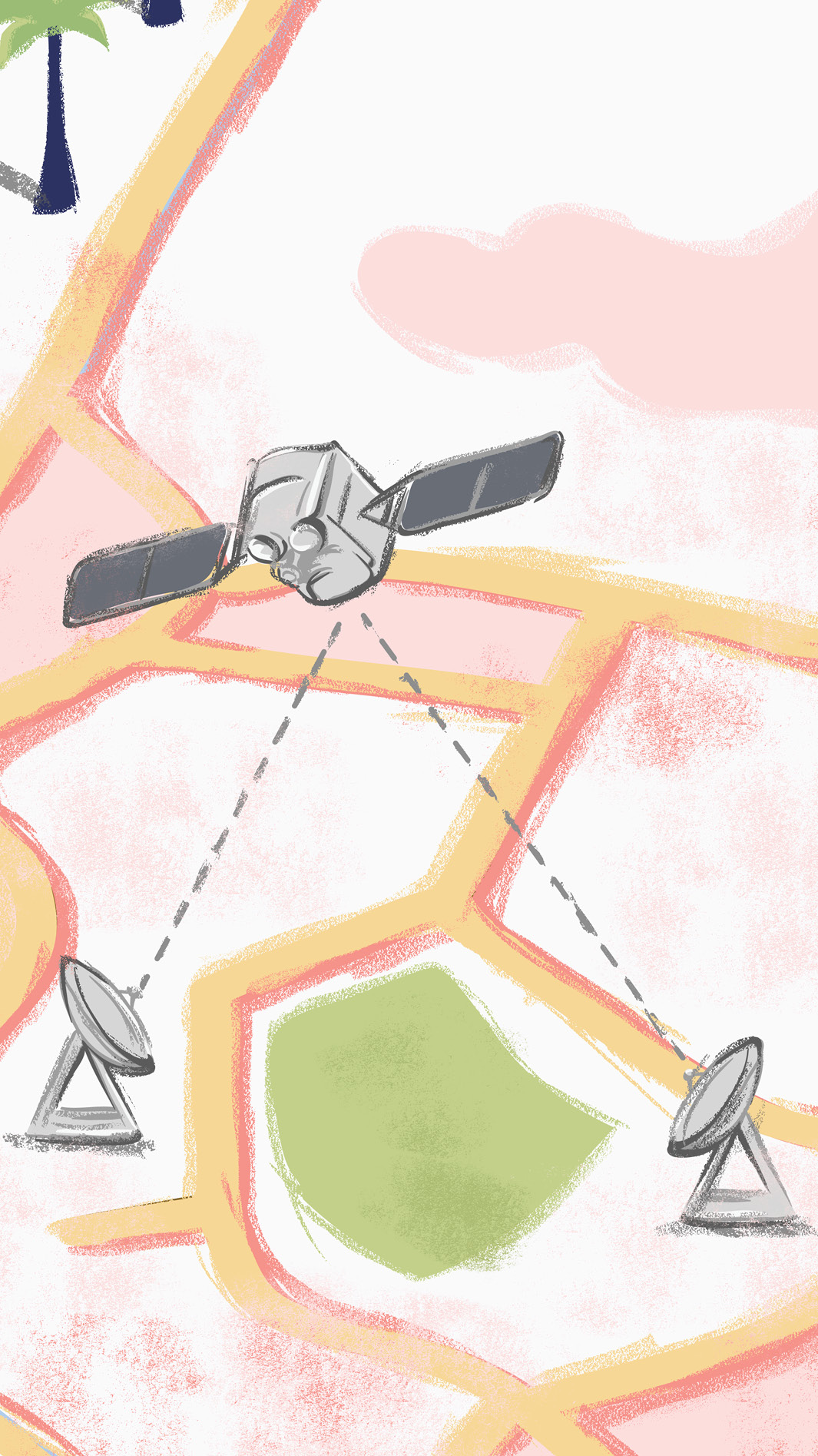- Arbitration
- Banking & Finance
- Capital Markets
- Commercial
- Competition
- Construction & Infrastructure
- Corporate / Mergers & Acquisitions
- Corporate Services
- Corporate Structuring
- Digital & Data
- Dispute Resolution
- Employment & Incentives
- Family Business & Private Wealth
- Innovation, Patents & Industrial Property (3IP)
- Insurance
Find a Lawyer
Book an appointment with us, or search the directory to find the right lawyer for you directly through the app.
Find out more
Game Theory


2025 is set to be a game-changer for the MENA region, with legal and regulatory shifts from 2024 continuing to reshape its economic landscape. Saudi Arabia, the UAE, Egypt, Iraq, Qatar, and Bahrain are all implementing groundbreaking reforms in sustainable financing, investment laws, labor regulations, and dispute resolution. As the region positions itself for deeper global integration, businesses must adapt to a rapidly evolving legal environment.
Our Eyes on 2025 publication provides essential insights and practical guidance on the key legal updates shaping the year ahead—equipping you with the knowledge to stay ahead in this dynamic market.
The leading law firm in the Middle East & North Africa region.
A complete spectrum of legal services across jurisdictions in the Middle East & North Africa.
-
Practices
- All Practices
- Banking & Finance
- Capital Markets
- Commercial
- Competition
- Construction & Infrastructure
- Corporate / Mergers & Acquisitions
- Corporate Services
- Corporate Structuring
-
Sectors
-
Country Groups
-
Client Solutions
Today's news and tomorrow's trends from around the region.
17 offices across the Middle East & North Africa.
Our Services
 Back
Back
-
Practices
- All Practices
- Banking & Finance
- Capital Markets
- Commercial
- Competition
- Construction & Infrastructure
- Corporate / Mergers & Acquisitions
- Corporate Services
- Corporate Structuring
- Digital & Data
- Dispute Resolution
- Employment & Incentives
- Family Business & Private Wealth
- Innovation, Patents & Industrial Property (3IP)
- Insurance
- Intellectual Property
- Legislative Drafting
- Private Client Services
- Private Equity
- Private Notary
- Projects
- Real Estate
- Regulatory
- Tax
- Turnaround, Restructuring & Insolvency
- White Collar Crime & Investigations
-
Sectors
-
Country Groups
-
Client Solutions

- Law Firm
- /
- Insights
- /
- Law Update
- /
- September 2019
- /
- A Space Odyssey: Licensing Satellite Based Telecommunications Services in Saudi Arabia
A Space Odyssey: Licensing Satellite Based Telecommunications Services in Saudi Arabia
Zil Ur Rehman - Senior Associate - Digital & Data
 Technological developments in the telecommunication industry have led to strong competition between various modes of providing communication services. Satellite-based communications systems compete with other media of data transfer, such as fibre optics and other land-based delivery systems such as micro-waves and even power lines. One unique feature of satellite-based communication systems is that signals (and subsequently data) can be distributed from one point of transmission to many receiving locations. (This makes satellite-based communication systems well suited for “point-to-multipoint” communications, such as broadcasting.) Another advantage is that high investments in on-the-ground infrastructure are not required, making satellite communication systems ideal for marginalised and remote areas characterised by scattered populations. Satellite communication is also distance insensitive (i.e. the cost of capacity does not increase with increasing distances between communication points), it is available to maritime and even aeronautical markets, and it is tremendously versatile and supports diverse forms of communications (ranging from point-of-sale validation to bandwidth intensive applications). Following the exponential growth of the internet, considerable data traffic now utilises satellite-based communications technology to flow from one location to another. This makes internet service providers one of the largest customer base of satellite-based communications service providers.
Technological developments in the telecommunication industry have led to strong competition between various modes of providing communication services. Satellite-based communications systems compete with other media of data transfer, such as fibre optics and other land-based delivery systems such as micro-waves and even power lines. One unique feature of satellite-based communication systems is that signals (and subsequently data) can be distributed from one point of transmission to many receiving locations. (This makes satellite-based communication systems well suited for “point-to-multipoint” communications, such as broadcasting.) Another advantage is that high investments in on-the-ground infrastructure are not required, making satellite communication systems ideal for marginalised and remote areas characterised by scattered populations. Satellite communication is also distance insensitive (i.e. the cost of capacity does not increase with increasing distances between communication points), it is available to maritime and even aeronautical markets, and it is tremendously versatile and supports diverse forms of communications (ranging from point-of-sale validation to bandwidth intensive applications). Following the exponential growth of the internet, considerable data traffic now utilises satellite-based communications technology to flow from one location to another. This makes internet service providers one of the largest customer base of satellite-based communications service providers.
Regulation of satellite-based communications services is important for a variety of reasons including transparency, accountability, competition and quality assurance. This article focuses on licensing of satellite-based communications services in Saudi Arabia.
Licensing Satellite-based Communication Services in Saudi Arabia
The Communication and Information Technology Commission (‘CITC’) is the government entity responsible for regulating satellite-based communications services in Saudi Arabia.
The Telecoms Law (Royal Decree No. (M/12) of 12/03/1422H (3 June 2001); Council of Ministers Resolution No. (74) of 05/03/1422H (27 May 2001)) prohibits the provision of satellite-based communications services without obtaining a licence from the CITC.
Presently, the CITC distinguishes, and licenses, satellite-based communications services, as per the following three categories:
- Very Small Aperture Terminal (VSAT) satellite services;
- Global Mobile Personal Communication Services (GMPCS); and
- Broadband Satellite Services.
VSAT Satellite Services
The CITC’s Special Conditions for Licensing Provision of Telecommunications Services Using VSAT System (‘VSAT Conditions’) set out the specific terms and requirements to be fulfilled in order to obtain a licence to provide VSAT satellite services within Saudi Arabia. As per the VSAT Conditions, the scope of the licence granted by the CITC allows the licensee to establish a telecommunications network in Saudi Arabia using VSAT technology conforming to international standards and approved by a recognised international standards organisation, and to operate and maintain the network to provide services in accordance with the VSAT Conditions. The licensees are permitted to use space capacities of the satellites allowed to be used in KSA. The licensee may reach an agreement with other operators licensed for VSAT systems to participate in these capacities. Pursuant to the VSAT licensing regime, licensees can provide telecommunication services using the VSAT system at local and national levels.
Licensees may interlink closed groups inside or outside the Kingdom. Typically, a closed group is a user group configuration that restricts access beyond the user group members. Calls and similar telecom services are only available between users within the group. Internet service provision is channelled to closed user groups through CITC licensed international gateways.
CITC is empowered to impose certain requirements of universal access and universal services which the licensee is obligated to fulfil. Coordination is required with the CITC in order for the licensee to register the VSAT stations/station hubs pursuant to regulations under the International Telecommunications Union (‘ITU’). All VSAT stations/station hubs are to be located within the boundaries of Saudi Arabia.
GMPCS Systems, Networks and Services
The CITC currently makes available two types of licence for GMPCS-based satellite services. These are:
- “GMPCS Operations” licence: Special Terms and Conditions of Type B Class License to Operate Systems and Networks of GMPCS; and
- “GMPCS Provision” licence: Special Terms and Conditions Type B Class License to Provide GMPCS Services.
Common Conditions for GMPCS Provision Licences and GMPCS Operations Licences
There are certain conditions imposed on licensees common to both GMPCS Operations licences and GMPCS Provision licences. These include:
- Assignment of the licence, or sub-contracting any services to be provided under the licence, is subject to CITC’s prior written approval.
- Continuity of service must be ensured if the licence is revoked, suspended or expires.
- Equipment needs to be ‘type approved’.
- CITC must be supplied with periodic reports, and such other information as it may request of the licensees.
- Equipment and networks need to be accessible for security monitoring equipment can be interconnected to relevant networks.
- Government authorities need to be able to use the networks during times of emergency.
GMPCS Operations
The GMPCS Operations licence allows licensees to install, operate and manage the network necessary to provide GMPCS in Saudi Arabia, and use prescribed frequencies to support provision of GMPCS. (The GMPCS Operations licence does not allow the actual provision of GMPCS based services.)
There are special considerations for the licensee in respect of the use of frequencies. The licensee is required to apply all reasonable commercial procedures to increase the efficiency of using the allocated frequencies. The licensee must use the allocated frequencies in a manner consistent with applicable international understandings, requirements and regional governmental arrangements designed to reduce radio interference. The licensee must notify the CITC promptly of any interference resulting from other countries’ allocation of frequencies, so as to enable the CITC to take the necessary steps to address such interference.
Certain service obligations are also levelled upon the licensee. These include obligations pertaining to universal service and access; system performance and quality of service; provision of information on commercial arrangements; relationship with other GMPCS operators; interconnection; and colocation.
GMPCS Provision
The GMPCS Provision licence is separate to the GMPCS Operations licence, and allows for the provision of GMPCS services to customers on a non-exclusive basis. These services include basic services; emergency services; SMS services, short information messages services; data services; value added services; and closed user groups.
The GMPCS Provision licence requirements include obligations on invoicing, non-discrimination in customers, quality of service, and reporting to the CITC. The CITC is to be consulted when setting and varying tariffs. Licensees are allocated numbers in accordance with Saudi Arabia’s numbering plan.
Broadband Satellite Services
The provision of satellite-based broadband services is regulated under the Special Terms and Conditions Type B Class License for Providing Broadband Satellite Services. The licensee is allowed to provide mobile, fixed or nomadic services, including broadband data satellite services, voice communications through broadband, value added broadband services, and internet. (The transmission of content requires a separate licence and approvals from other authorities.) The licensee is not permitted to launch satellites, or to build or operate terrestrial transmission facilities or an international gateway, but may obtain these services from licensed service providers. The licensee is required to construct and operate certain infrastructure facilities within Saudi Arabia. These include a network operation centre to provide service, support and control to the users, and at least one land station interlinked to at least one satellite with terminals for management of the licensed services.
Further conditions imposed on licensees providing broadband satellite-based communication services are broadly consistent with those set out above and common to both GMPCS Operations licences and GMPCS Provision licences.
Conclusion
The CITC has considerable power to investigate and prosecute offences and any violations of the terms and conditions of the licenses discussed above. The CITC has a violations committee that considers and rules on violations. Penalties for non-compliance with the Telecoms Law, its By-Laws, and any associated regulations, rules and licensing requirements, can include fines of up to SAR25M (about USD6.5M), as well as an account of profits and publication of details of the violation and the violator. In appropriate circumstances, criminal prosecution may also occur, and affected parties may also make a claim for damages. Generally, licensees who have committed violations are provided with an opportunity to be heard and reasonable time to rectify the breach. Any acts undertaken by the licensees to rectify the violation will be taken into consideration by the violations committee. Against this background, it is important to be aware of, and comply with, the relevant licensing requirements for providing satellite-based communications services in Saudi Arabia.
Al Tamimi & Company’s Technology, Media & Telecommunication team regularly advises on Licensing of Satellite Based Telecom Services in Saudi Arabia and the Middle East. For further information please contact Nick O’Connell (n.oconnell@tamimi.com) or Zil Ur Rehman (z.rehman@tamimi.com).
Stay updated
To learn more about our services and get the latest legal insights from across the Middle East and North Africa region, click on the link below.


